Symposium: The History of Emily Montague
Any way you read it…the novel is still able to instruct and delight.
–Borealis Press
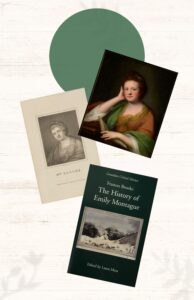 Come learn about Canada’s first novel at our half-day symposium aimed to inform and delight. We ask: what value is there in reading Frances Brooke’s The History of Emily Montague today?
Come learn about Canada’s first novel at our half-day symposium aimed to inform and delight. We ask: what value is there in reading Frances Brooke’s The History of Emily Montague today?
First published in 1769 and set in what eventually became Quebec City, this epistolary novel gives an intimate glimpse of social life just after the British conquest of New France. It is inspired by the writer’s own experience.
Offering insights on relations among the English, the Canadiens, and the Huron-Wendat, the novel reveals both progressive views and racial prejudices of the period through interwoven love stories. It sheds light on a complicated colonial past whose legacy continues to challenge us. The invited speakers will help us address important facets of the novel: Donald Fyson (specialist in 18th–20th-century Quebec history at Université Laval), Linda M. Morra (specialist in Canadian women’s literature at Bishop’s University), Jean-Philip Rochon Paul (member of the Huron-Wendat Nation), Peter Sabor (Canada Research Chair in Eighteenth-Century Studies at McGill University), and Philip Sioui (member of the Huron-Wendat Nation).
The talks will be accompanied by dramatic readings. A character actor and a touch of period music will add a flavour of the time. Whether you have read the novel or not, whether you are a member of the public or a specialist in the field, you are sure to come away with new perspectives on a novel which has continued to engage generations of readers.
This activity is in celebration of Frances Brooke’s 300th birthday as well as the LHSQ’s 200th anniversary. It is in partnership with the English literature program in the Département de littérature, théâtre et cinéma at Université Laval, the Huron-Wendat Nation, and CEGEP Champlain-St. Lawrence.
To register for this FREE event, click HERE.
For a complete list of The History of Emily Montague activities, please click HERE.
For more about the LHSQ200th activities, please click HERE.
EVENT SCHEDULE
1:30 Donald Fyson: “Emily Montague, Frances Brooke, and the Canadiens in Post-Conquest Quebec”
Frances Brooke’s The History of Emily Montague is undeniably a work of fiction, but it is in many ways also grounded in the realities of post-Conquest Quebec, which Brooke knew well. This talk examines the novel not as fiction, but as a historical source. How reliable is the view of Quebec provided in the novel? How well do the fictional characters represent the different groups actually present in Quebec in the 1760s? What can it tell us about the attitudes of the British elite towards the newly conquered Canadien population? And where did the novel fit into the political jockeying of the time?
2:30 Jean-Philip Rochon Paul & Philip Sioui: Wendat kwawennontahkwih!
Wendat kwawennontahkwih means, “We have the voice of the Wendat Nation.” This presentation will cover the process of revitalization of the Wendat language, how we awakened the language that was dormant, and the main projects behind the revitalization process. It will also offer a quick overview of the structure of the language and the approach related to translation. Finally, there will also be a short language course given to the actress playing Frances Brooke.
3:30 Peter Sabor: “’Dropping a tender tear’: Sensibility and Epistolarity in The History of Emily Montague”
This talk will address two aspects of The History of Emily Montague. The first is its emphasis on sensibility as a supreme virtue, as manifested by both its heroine, the eponymous Emily Montague, and its hero, Colonel Ed. Rivers. Why did Frances Brooke, and many other eighteenth-century authors, value sensibility so highly? I shall then turn to the novel’s epistolary form, showing how Brooke makes use of a large body of intertwined correspondence to convey her narrative. What were the advantages and disadvantages of telling a novel in letters, rather than through third-person narration?
4:15 Linda Morra: “Authorial Desire/Design in Frances Brooke’s The History of Emily Montague”
The heroine of Frances Brooke’s The History of Emily Montague (1769), often considered the “first” Canadian novel, is purportedly Emily herself, as the title seemingly suggests. The introduction of her Canadian rival, Madame Des Roches, for the attentions of the hero, Ed Rivers, however, would imply otherwise. She is in fact a character who, even without epistolary representation, is more appealing, conveying a sensitivity and maturity that eludes her British counterpart, Emily herself. When situating these characters in relation to the empire / colony paradigm with which Brooke was operating, it becomes clear that her authorial design threatens to be undone by the very terms these characters embody. The novel’s conclusion therefore offers a tenuous resolution because the colony, represented by Des Roches, seems far more seductive than the British empire, represented by Montague—the very narrative and history that the novel was meant to celebrate.
PRESENTERS
 Donald Fyson is a professor of history at Université Laval, specializing in the history of eighteenth-, nineteenth- and twentieth-century Quebec. He is particularly interested in the relationship between law, state, and society, notably as seen through the everyday operation of the criminal and civil justice systems, the police, and local administration. His research has touched on topics such as homicides, imprisonment, and capital punishment. He is also the LHSQ’s honorary librarian.
Donald Fyson is a professor of history at Université Laval, specializing in the history of eighteenth-, nineteenth- and twentieth-century Quebec. He is particularly interested in the relationship between law, state, and society, notably as seen through the everyday operation of the criminal and civil justice systems, the police, and local administration. His research has touched on topics such as homicides, imprisonment, and capital punishment. He is also the LHSQ’s honorary librarian.
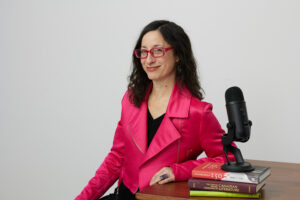
Photo credit: Nadia Zhang
Linda Morra is Professor of Canadian and Indigenous Literatures at Bishop’s University and the host/writer of the award-winning podcast, Getting Lit With Linda. She was the Craig Dobbin Chair of Canadian Studies (2016-2017), a Visiting Scholar at University of California, Berkeley (2016), and the Jack and Nancy Farley Visiting Scholar at Simon Fraser University (2022). She has published several books, including Unarrested Archives (UTP), Finalist of the Gabrielle Roy Prize 2015; Moving Archives (WLUP), Winner of the Gabrielle Roy Prize 2020; On the Other Side(s) of 150 (WLUP, co-edited with Sarah Henzi), winner of the Canadian Studies Network Prize; and The Routledge Introduction to Gender and Sexuality in Literature in Canada

Jean-Philip Rochon Paul: Son of canoe maker, I was born and grew up in the First Nation community of Wendake, where I still live. Member of the Deer Clan, I taught, until recently, the Wendat language and its culture to children at l’école Wahta’ in Wendake. Currently, I am a development officer of the Wendat language in the language sector of the Council of the Nation huronne-wendat.
Kwe aweti’! Jean-Philip yiatsih. Wendake indare’. Wendat endi’. Ohskënonton’ iwayitiohkou’tenh. Paul iwayehwatsirou’tenh.
(Hello everyone! My name is Jean-Philip. I live in Wendake. I am Wendat. I belong to the Deer Clan. I am part of the Paul family.)

Peter Sabor, a Fellow of the Royal Society of Canada, is Canada Research Chair in Eighteenth-Century Studies and Professor of English at McGill University, where he is also Director of the Burney Centre. Among his publications are The Correspondence of John Cleland, co-edited with Richard Terry and Helen Williams (Cambridge University Press, 2024); and Samuel Richardson in Context, co-edited with Betty Schellenberg (Cambridge University Press, 2017). His research interests include Frances Brooke’s predecessors, such as Richardson and Sarah Fielding; her contemporaries, such as Samuel Johnson and Horace Walpole; and her successors, such as Frances Burney and Jane Austen.
Philip Sioui (more information coming soon).
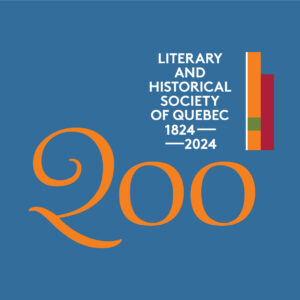
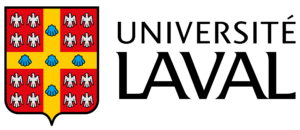
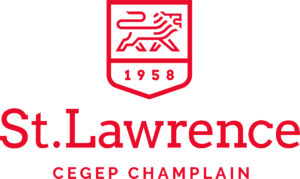
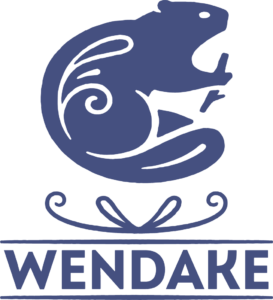
Thank you to the Government of Canada for their support. 
Image 1: Frances Brooke by Catherine Read, Oil on canvas (c. 1771), Library and Archives Canada, 1981-88-1, e011154587
Image 2: Frances Brooke by James Hopwood Sr., Stipple engraving (1812), National Portrait Gallery, D14044